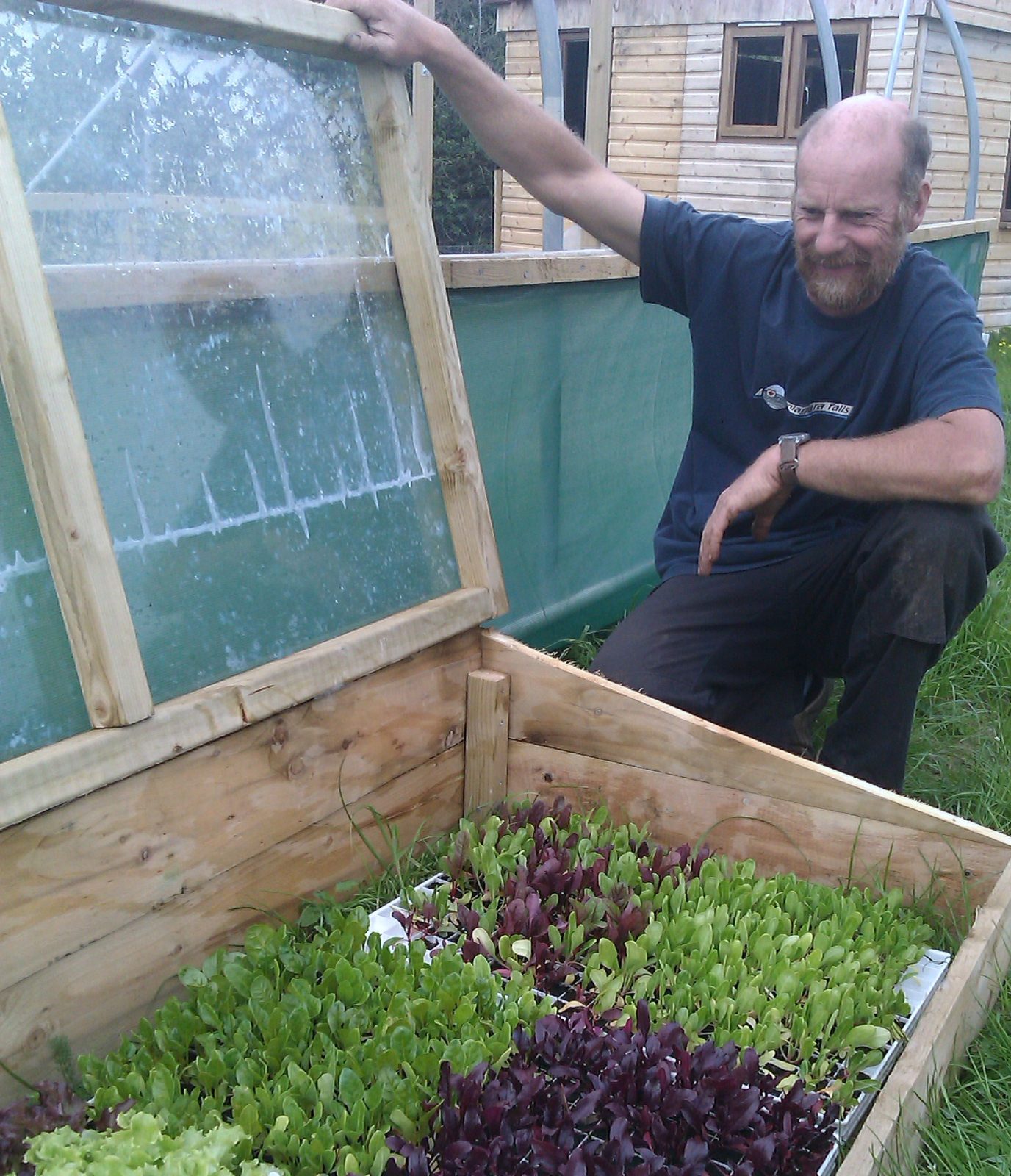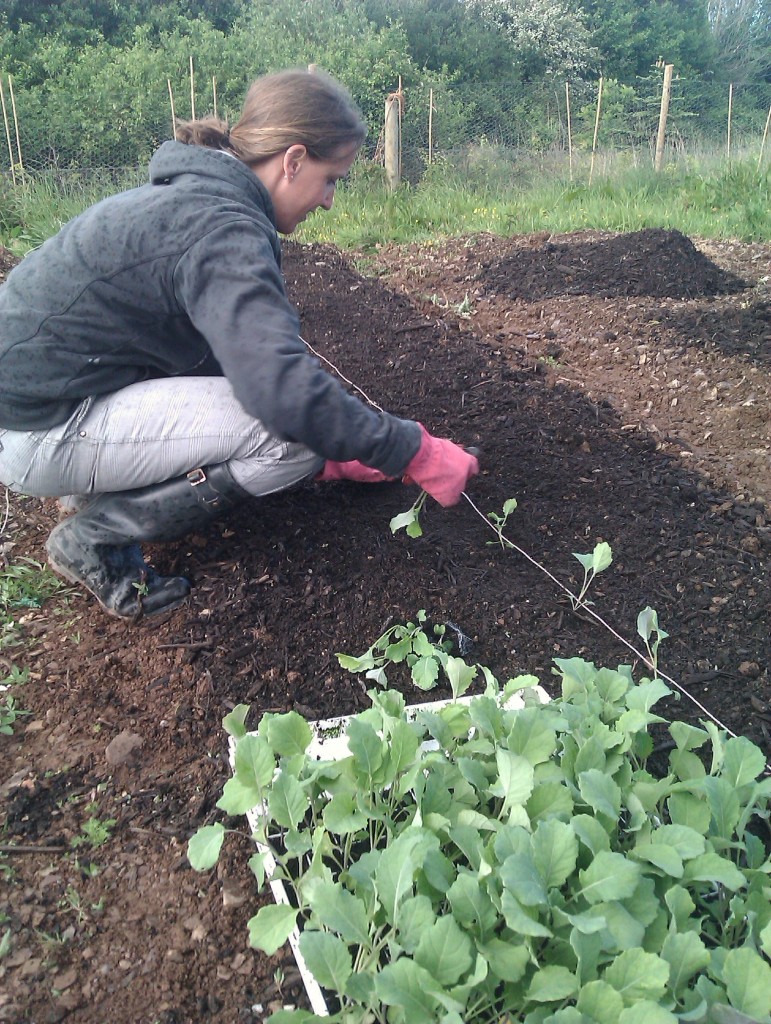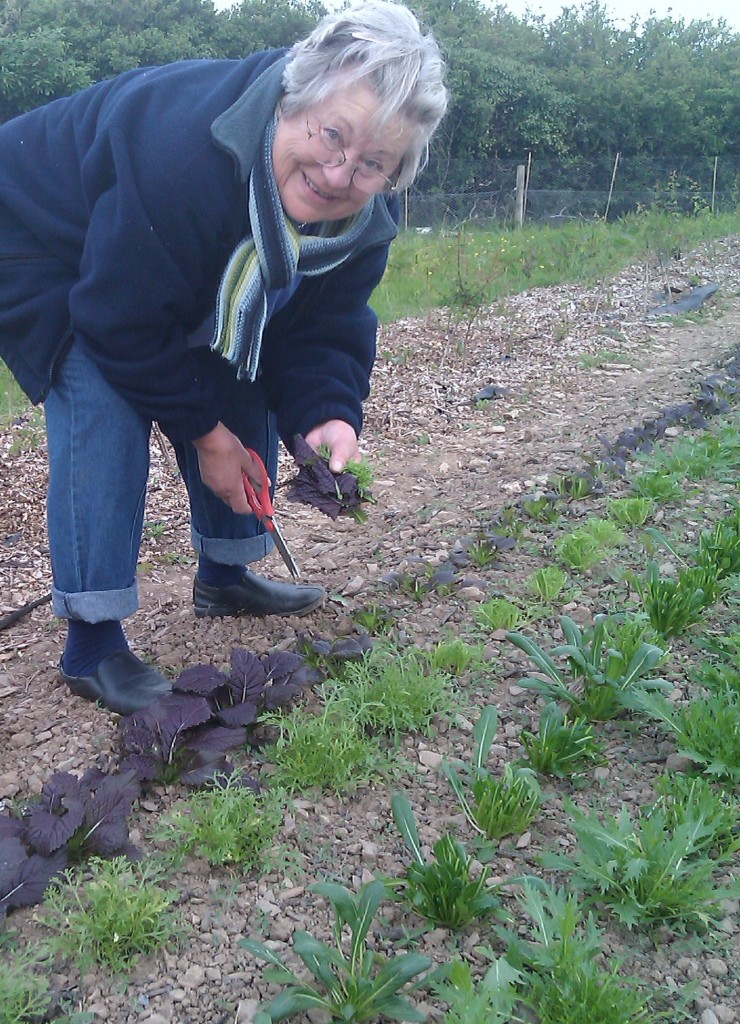Camel CSA members carry on sowing, growing, planting

May 11, 2011
Cornish growers have experienced weather conditions ranging from drought to monsoon in a matter of days. Our own team has been alternately watering thirsty crops and wading through sticky mud.
The extended dry spell in Cornwall means we’re a little behind with some tasks. However the recent rain has enabled us to sow more peas, beans, parsnips, radishes, beetroot and carrot directly into the ground and plant out broccoli, cabbage, bunched onions, Swiss chard, lettuces, turnips and parsley.
The kohlrabi hasn’t germinated well outdoors, so we’re about to sow some in modules, along with more cabbage, Brussels sprouts, calabrese, celeriac and purple sprouting broccoli. We’ve also sown hundreds of winter squash seeds.

Salad leaves, french beans, leek seedlings, spring onions and baby beetroot are thriving in the polytunnel, though the indoor carrots aren’t doing so well.
Camel CSA’s weekly veg boxes rely heavily at this time of year on fresh supplies bought in directly from other local farmers and growers who’ve built up strong relationships with us. This mutually beneficial approach is all part of being a CSA.
They include Cornish asparagus produced by the Derrymans at Lower Croan, Sladesbridge; cauliflower and spring greens from Richard Hore of Restharrow Farm, Trebetherick; leeks and spinach from Jeremy Brown of St Kew Harvest; potatoes from Johnny Brown of Benbole Farm, St Kew Highway and James Mutton of Burlerrow, St Mabyn; rhubarb and mung beans (sprouted in his linen cupboard!) from Mark Norman in Bodmin.

In the aftermath of a long, hard winter it’s become more and more difficult to source fresh, seasonal veg grown within this 10-mile radius. When forced to cast our net county-wide we buy from Growfair Cornwall. But at least we’ve kept this side of the Tamar!
Fortunately our own early salad crops are sprouting fast.
Our volunteer picking and packing team spend some time every Friday morning cutting individual lettuce leaves from the polytunnel and outdoor-grown oriental greens – including spicy mustard, mizuna and mibuna – before bagging them up for the boxes.
The other immediate jobs involve covering the second polytunnel to house the tomatoes, completing the small seeding tunnel and getting the roof and windows finished on the potting shed.


